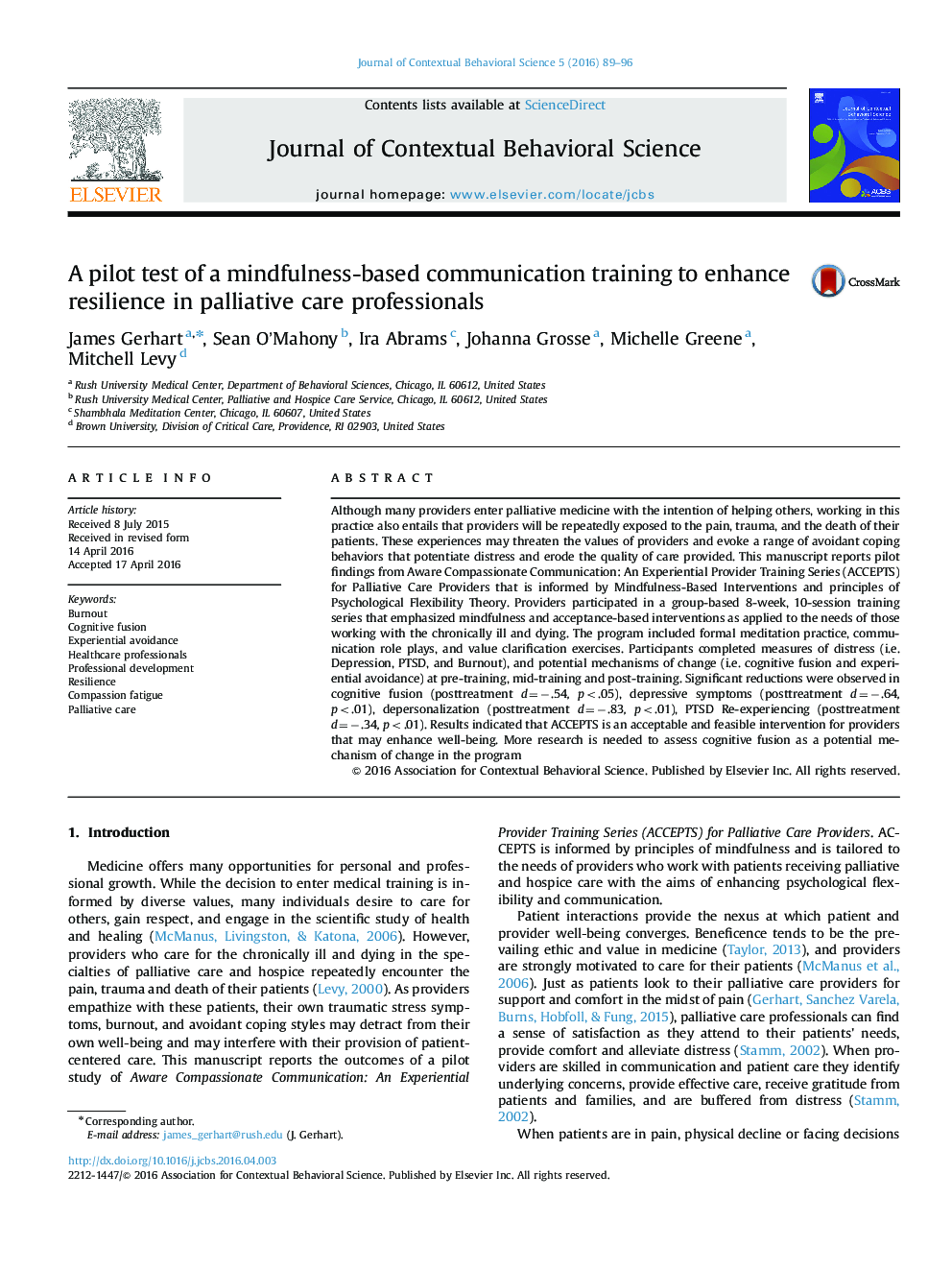| کد مقاله | کد نشریه | سال انتشار | مقاله انگلیسی | نسخه تمام متن |
|---|---|---|---|---|
| 911153 | 1473121 | 2016 | 8 صفحه PDF | دانلود رایگان |
• Palliative Medicine may lead to distress, trauma, and burnout.
• Cognitive Fusion is linked to PTSD and Depression Symptoms.
• Mindfulness-based training was associated with lower cognitive fusion.
• Participation in training was associated with lower levels of distress.
Although many providers enter palliative medicine with the intention of helping others, working in this practice also entails that providers will be repeatedly exposed to the pain, trauma, and the death of their patients. These experiences may threaten the values of providers and evoke a range of avoidant coping behaviors that potentiate distress and erode the quality of care provided. This manuscript reports pilot findings from Aware Compassionate Communication: An Experiential Provider Training Series (ACCEPTS) for Palliative Care Providers that is informed by Mindfulness-Based Interventions and principles of Psychological Flexibility Theory. Providers participated in a group-based 8-week, 10-session training series that emphasized mindfulness and acceptance-based interventions as applied to the needs of those working with the chronically ill and dying. The program included formal meditation practice, communication role plays, and value clarification exercises. Participants completed measures of distress (i.e. Depression, PTSD, and Burnout), and potential mechanisms of change (i.e. cognitive fusion and experiential avoidance) at pre-training, mid-training and post-training. Significant reductions were observed in cognitive fusion (posttreatment d=−.54, p<.05), depressive symptoms (posttreatment d=−.64, p<.01), depersonalization (posttreatment d=−.83, p<.01), PTSD Re-experiencing (posttreatment d=−.34, p<.01). Results indicated that ACCEPTS is an acceptable and feasible intervention for providers that may enhance well-being. More research is needed to assess cognitive fusion as a potential mechanism of change in the program
Journal: Journal of Contextual Behavioral Science - Volume 5, Issue 2, April 2016, Pages 89–96
